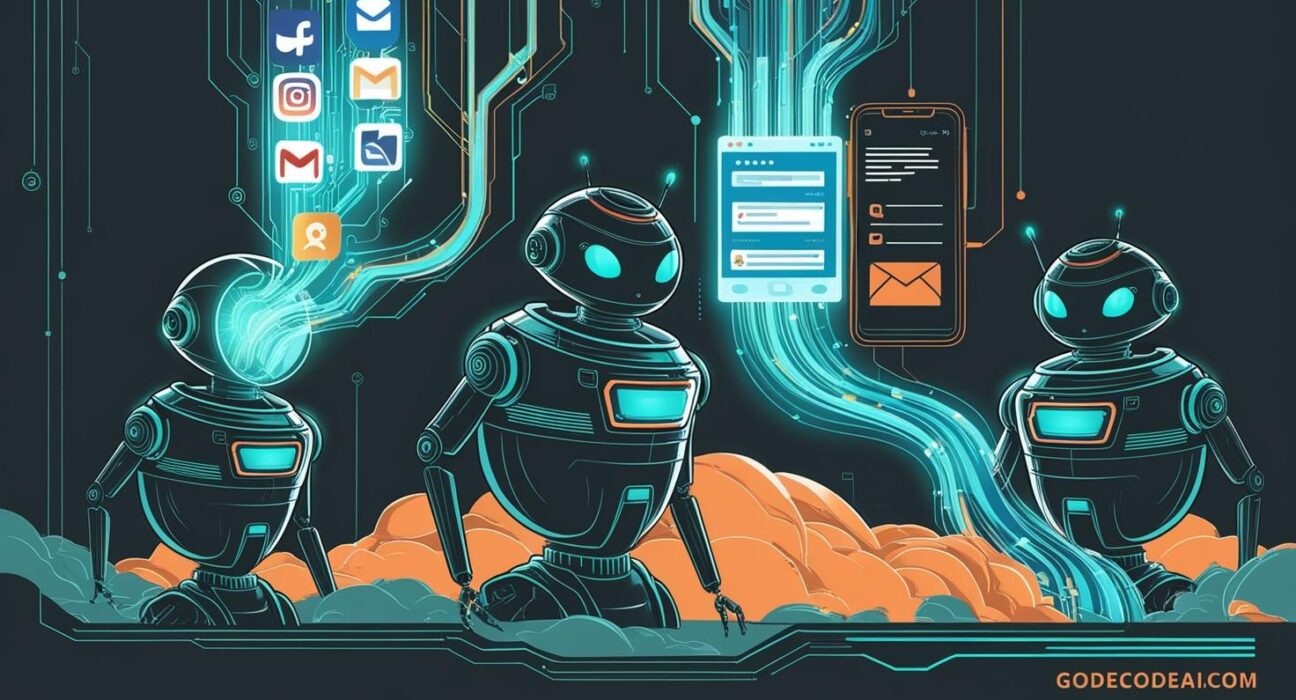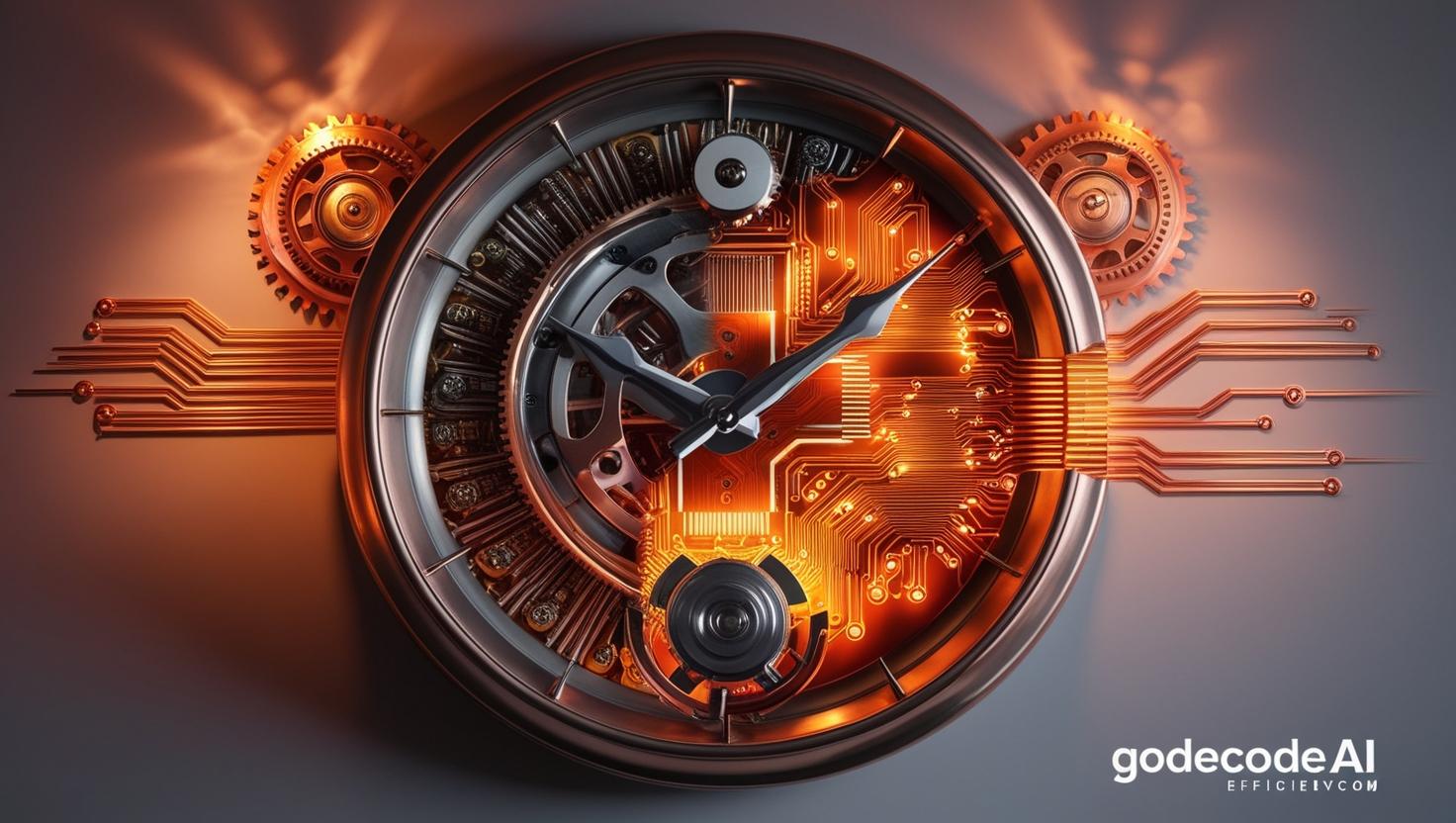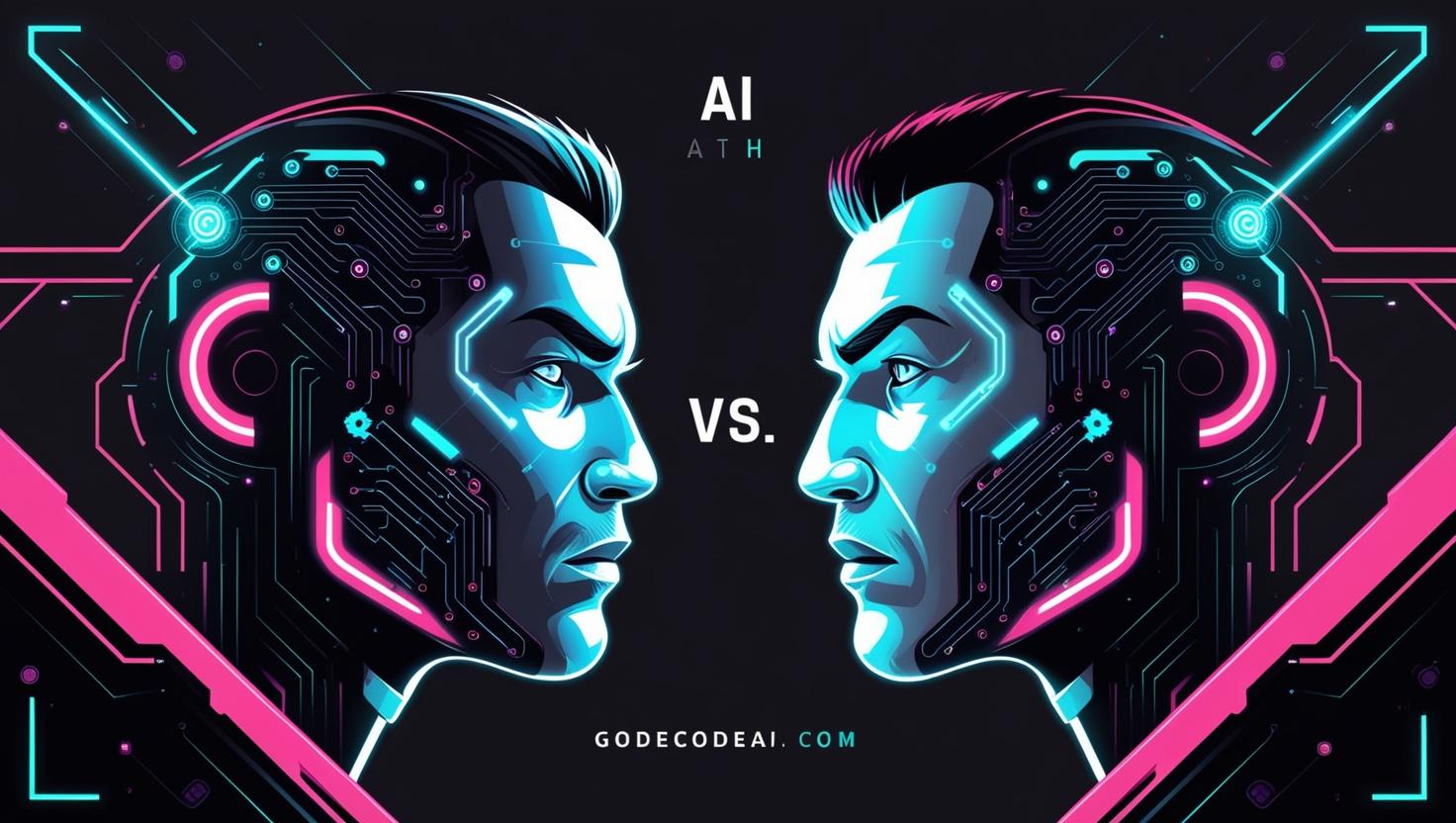The Dark Side of AI and Privacy
We live in an era where artificial intelligence (AI) is transforming every corner of our lives. From smart devices and personal assistants to recommendation algorithms and surveillance systems, AI is deeply embedded in our daily routines. While this brings undeniable conveniences, it also raises profound concerns about privacy.
The AI-powered tools we use aren’t just collecting data to make our lives easier—they’re also collecting a staggering amount of personal information. As AI becomes more sophisticated, the question becomes: How much do we really know about what these systems are doing with our data? And more importantly, what happens when AI crosses the line of privacy?
In this article, we’ll explore the AI privacy nightmare, revealing the unseen dangers of AI-powered systems and how they threaten to compromise your personal privacy in ways you might not have imagined.
2. AI and Data Collection: The Unseen Surveillance
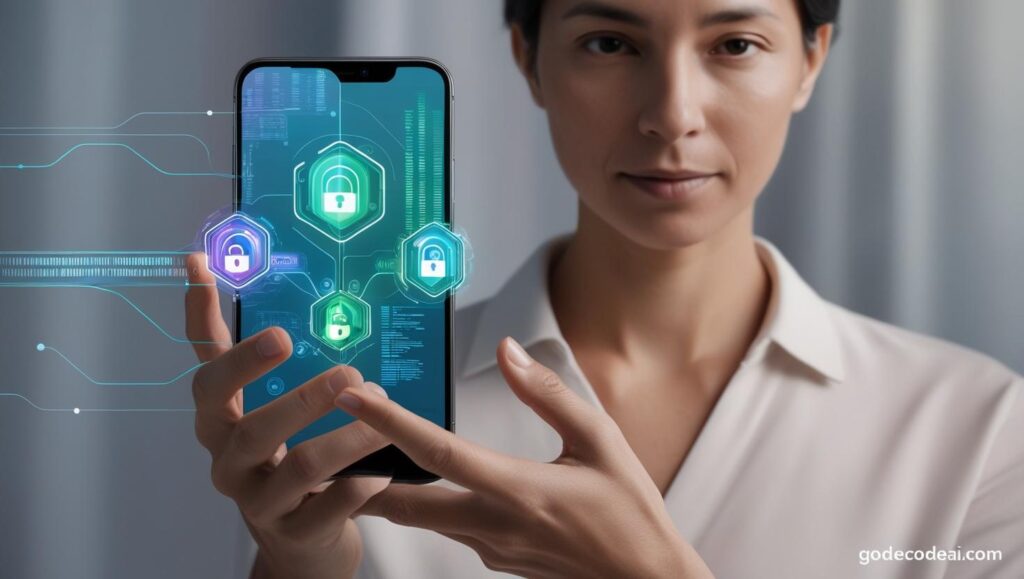
Every time we interact with an AI-driven tool—whether it’s a voice assistant, a social media platform, or an online store—data is being collected. This data often includes highly sensitive information, such as:
- Personal preferences: What you buy, what you listen to, where you go.
- Behavioral patterns: How you browse, when you shop, and even how long you spend on specific activities.
- Location data: Where you are at any given moment, sometimes even tracked in real-time.
🔍 How AI Collects Data Without You Realizing It
AI systems are powered by massive datasets, and their algorithms rely heavily on learning from user interactions. The more you engage with these tools, the more data they collect to improve performance. However, many users fail to realize just how much of their private life is being observed, analyzed, and recorded.
Example: Amazon’s Alexa or Google Assistant constantly listens for commands, even when they’re not actively in use. While this may seem convenient, it also means these devices are collecting audio data, which could be stored indefinitely or used for unintended purposes.
3. The Rise of Facial Recognition: Big Brother in Action
One of the most alarming privacy risks related to AI is the rise of facial recognition technology. Used in everything from smartphones to public surveillance cameras, facial recognition AI systems can track your movements, identity, and even your emotions.
🕵️ How It Works:
AI-powered facial recognition software analyzes the unique features of your face to create a biometric profile. This profile can be used to identify you in crowds, track your movements across different locations, and connect you to other personal data points.
Example: In China, facial recognition is used extensively for public surveillance, and it’s even being used to track people in smart cities. These systems can scan faces from hundreds of meters away, making it impossible to maintain any level of anonymity in public spaces.
🚨 The Privacy Risk:
While facial recognition can be convenient (e.g., unlocking your phone), it’s also a serious privacy threat. AI systems can track your face across cities, even in anonymous crowds, and potentially create an invisible database of your daily movements without your knowledge.
4. AI and the Blurring of Public and Private Boundaries
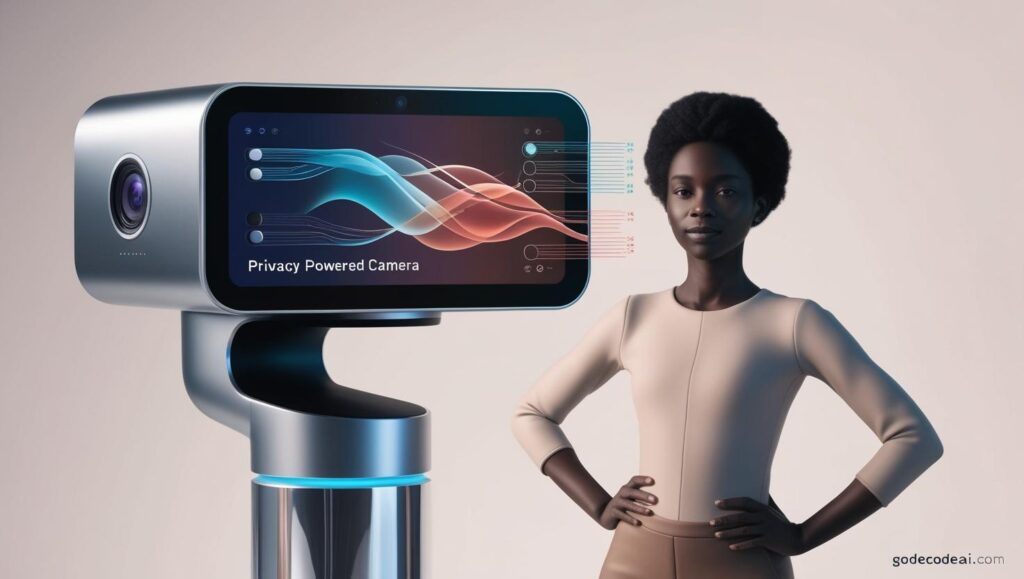
One of the most insidious aspects of AI-powered privacy breaches is how AI blurs the line between public and private spaces. Data leaks, unauthorized access, and algorithmic profiling can occur in ways that are difficult for individuals to detect.
🧠 Behavioral Profiling and Algorithmic Bias
AI algorithms are not only learning from your data—they’re also making decisions based on it. Whether it’s through social media feeds, product recommendations, or even hiring algorithms, AI is constantly using your data to form a profile of your behavior. This information can be used to:
- Predict your actions (What will you buy next? What’s your next career move?)
- Manipulate your choices (Targeted ads, political messages, etc.)
- Limit your access to information (Echo chambers, search result censorship, etc.)
Example: Facebook’s advertising system uses your online behavior to show you targeted ads. However, it can also affect the content you see, reinforcing biases or narrowing the scope of what you are exposed to.
⚠️ The Privacy Risk:
AI’s use of personal data can lead to significant breaches of individual autonomy. By profiling individuals based on behavioral patterns, AI can inadvertently reinforce biases, discrimination, and inequality—all while you’re unaware of how your personal data is being used.
5. AI-Powered Data Harvesting: The Dark Web of Privacy
In addition to the data we willingly share with AI systems, there’s a darker side to this story: AI-powered data harvesting. Hackers, cybercriminals, and even corporations can exploit AI tools to harvest data from public sources, dark web markets, and even unprotected personal databases.
🏴 Data Harvesting with AI Tools
AI-powered bots are capable of scraping massive amounts of data from online platforms, including social media profiles, forum posts, comments, and even private databases. This scraped data can then be sold on the dark web or used to manipulate individuals in cyberattacks, identity theft, or fraudulent activities.
Example: In recent years, there have been several data breaches where AI-powered bots have been used to scrape private user data from platforms like Facebook, LinkedIn, and even healthcare websites. This data is then used to target individuals with scams, phishing attacks, or identity theft.
💥 The Privacy Risk:
If your data is exposed in these breaches, AI could be used to exploit it. This poses a significant risk to financial security, personal safety, and even your reputation.
6. The Future of AI Privacy: How to Protect Yourself

While the AI privacy nightmare may sound overwhelming, there are steps you can take to protect your privacy and minimize the risks.
🛡️ Tips for Protecting Your AI Privacy:
- Limit Permissions: Regularly check the permissions you’ve granted to AI-powered apps and devices. For example, disable location tracking and voice recording unless absolutely necessary.
- Use Encryption: Always use end-to-end encryption for your communications. This ensures that even if your data is intercepted, it’s unreadable.
- Secure Your Devices: Enable strong passwords, two-factor authentication, and biometric security to protect your devices from unauthorized access.
- Be Mindful of Data Sharing: Think carefully about what personal information you share with AI systems. Avoid oversharing on social media and be cautious when signing up for new apps or services.
- Stay Informed: Stay updated on the latest AI privacy trends and regulations, such as the GDPR in Europe, that are aimed at protecting users’ data.
7. FAQs
Q: Can AI track my every move?
Yes, AI systems can track your location, behavior, and preferences through your phone, apps, social media, and even smart home devices. However, there are privacy measures you can take to limit this tracking, such as adjusting your device settings and limiting permissions.
Q: Is AI’s use of personal data legal?
The legality of AI’s use of personal data depends on the regulations in place in your region. In the European Union, for example, the GDPR requires companies to obtain explicit consent before using personal data. In other regions, laws may vary.
Q: How can I stop AI from accessing my personal data?
To stop AI from accessing your data, you should regularly review your privacy settings, avoid sharing excessive personal information, and use tools like VPNs and encryption to protect your data online.
8. Final Thoughts: Navigating the AI Privacy Minefield
While AI has the potential to enhance our lives in incredible ways, it’s clear that it also poses significant risks to our privacy. From data collection and surveillance to algorithmic manipulation and data harvesting, the dangers are real and growing.
As we move further into the AI-powered future, it’s crucial to stay vigilant, informed, and proactive in protecting our personal data. The AI privacy nightmare may be lurking around the corner, but with the right precautions, we can safeguard our personal lives against it.



